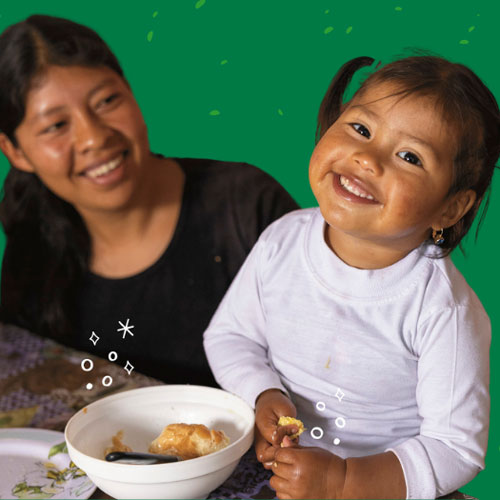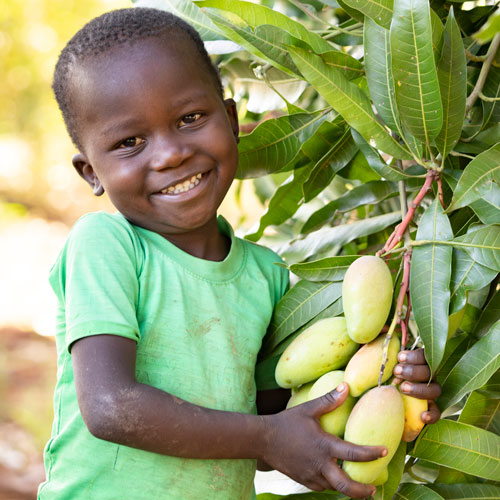Every child deserves to be protected against preventable, life-threatening diseases.
Yet, every year countless children are going without access to the vaccinations they need to have healthy childhoods. It is estimated that 20 million children continue to go without access to life-saving childhood vaccinations each year. This is despite immunisation being one of the most successful and cost-effective health interventions in the world saving over three million lives each year.
There has been significant progress across the world in closing the gap on childhood vaccinations; however, for children in the world’s most marginalised communities, vaccinations are still not always available, accessible, or affordable. In addition, the COVID-19 pandemic contributed to the largest sustained backslide in childhood immunisation in 30 years with 67 million children missing out on routine childhood vaccinations. Concurrently, we’ve seen vaccination hesitancy grow throughout the pandemic leading to a decline in public perception on the importance of childhood vaccines in many countries.
This World Immunisation Week, join us in promoting the importance of vaccines to protect people of all ages against life-threatening but preventable diseases, such as diphtheria, tetanus, whooping cough, and measles. Donate today to support all children living in poverty to access life-saving childhood vaccinations.
A health crisis on Australia’s doorstep
Australia’s closest neighbour, Papua New Guinea (PNG), has one of the lowest vaccination rates in the region. In recent years, the country has seen the re-emergence of previously eradicated diseases such as polio due to critically low vaccination rates and the emergence of vaccine resistant strains of the virus.
Low vaccination rates in PNG are a result of a variety of factors, including:
- Long distances between rural communities and health centres alongside high transportation costs making it difficult for people living in remote communities to access health facilities.
- An under-resourced health system, which has led to staff shortages, long wait times and inadequately trained staff.
- The reliance of remote communities on government-led mobile outreach programs that are often impacted by funding shortfalls, broken vehicles, or low vaccine stocks.
How ChildFund is helping to improve childhood immunisation rates in PNG
When I heard that the ChildFund team were coming to my village, I was excited and immediately rearranged my daily chores so that I could attend the mobile clinic. This was a great opportunity for my family and I to receive medicine, especially for my youngest child, Kila, to get immunised.
Mrs Abadi, a mum of nine living in a remote village in Central Province in PNG
ChildFund’s Mobile Health Clinics have had a profound impact on the ability of people living in remote communities to access much needed healthcare facilities. The clinics provide a one stop shop for a variety of health services, including vaccinations, maternal healthcare, and tuberculosis treatment, enabling people in remote communities to receive the healthcare they need without travelling long distances to nearest health clinic.
Since 2022, ChildFund Papua New Guinea in partnership with the Provincial Health Authorities in Central and Northern Provinces has delivered 16,545 vaccines to children living in remote and rural communities. ChildFund PNG has also trained 257 volunteers on how to provide vaccinations for preventable and treatable diseases like tuberculosis, polio, and COVID-19.
For women like Mrs Abadi, who lives with her nine children and husband in a remote village in Central Province in PNG, ChildFund’s mobile clinics are a lifeline. Previously, she had to travel long distances to the nearest health facility to ensure her family got the healthcare they needed.
“In the past, it was incredibly difficult for me to bring my children to the Kwikila Health Facility due to the poor road conditions and the unaffordable transport fares,”
“When I heard that the ChildFund team were coming to my village, I was excited and immediately rearranged my daily chores so that I could attend the mobile clinic. This was a great opportunity for my family and I to receive medicine, especially for my youngest child, Kila, to get immunised,” Mrs Abadi shared.
Mr Abadi added that the ChildFund team also shared information on different health topics, some of which were new to her and would help her to keep her family safe and healthy.
“I am grateful for the outreach health services that provide immunisations, as I know that this has been instrumental in keeping Kila safe from the sicknesses I hear about in awareness messages from ChildFund,” Mrs Abadi added.
Routine childhood vaccinations play a vital role in ensuring children live healthy, and long lives. Donate today so that more children like Kila can grow up safe and healthy.
On a recent trip to Papua New Guinea, two of ChildFund Australia’s Board members discovered how grassroots activities were making all the difference in helping to protect children from violence.
“Thirteen provinces – more than half of all the provinces in PNG – are not connected by road,” ChildFund Australia Board member, Michael Pain, said of his recent trip to the Pacific Island nation. “There’s a road from the capital, Port Moresby, but it ends suddenly. Beyond this, it’s just jungle.”
Michael, and fellow Board member, Tureia Sample (pictured above, and on the right in green and khaki), were far from the comforts of their homes in Australia when they visited Papua New Guinea (PNG) in early 2023 to see ChildFund’s programs in action. The journey took them into the rural areas and remote communities, but it wasn’t an entirely new experience for them: Tureia was born and grew up in PNG; and Michael had walked the Kokoda Track several years before.
But the trip in February with ChildFund showed them a new and first-hand perspective on some of the day-to-day challenges faced by people, particularly children and women, in PNG – and how ChildFund was working with their communities to create positive change.
“Having grown up in PNG, I knew about the poverty, but being there as a ChildFund Australia Board member – and not as someone in the family or the village – I saw things from a much more objective perspective,” Tureia said. “I saw the challenges of poverty and development more starkly.”
Child abuse is confronting but village courts ‘saving lives’
Papua New Guinea has some of the highest rates of family and gender-based violence in the world. Two in three women and girls in PNG experience some form of physical or sexual violence in their lifetime.
As a lawyer, Tureia was particularly moved by the impact of the village courts system that ChildFund PNG helped to implement in remote communities in Central Province. “It’s a grassroot activity empowering and training local people to resolve disputes in their villages in accordance with customary law,” she said. “It’s a completely different standard compared to what we have in Australia, but it was inspiring to hear the impact the courts were having on the lives of children and women in particular.”
Child abuse happens in Australia, but the conditions and severity of it in PNG were confronting, said Tureia. “There was one very sobering story of an eight-year-old boy whose stepfather repeatedly used fire, knives, and razor blades to cut his genitals and burn his skin. The awareness raised by the village courts around needing to report violence led to neighbours bringing the boy before the court and protecting him.
“It’s a terrible story, but it was inspiring to see how the village courts supported by ChildFund had helped to eventually save this boy’s life.”
An ‘enormously valuable’ helpline for survivors of violence
Another ChildFund initiative in PNG to help protect children and support survivors of violence is the 1-Tok Kaunselin Helpim Lain, a national telephone counselling helpline. It is the first and only helpline of its kind in PNG for people experiencing family, sexual or gender-based violence.
Helpline counsellors, who have been trained with ChildFund’s support, have access to a database of more than 350 services across the country, including safe houses, medical facilities and local police.
“It’s not your average run of the mill helpline,” Michael said. “It’s an enormously valuable resource, but a very tough one operationally to keep up to date. There are services and facilities available all over the country, but these are extremely fluid. The capacity and level of support changes and differs between communities. If our counsellors have a caller who is in an emergency or crisis, they need to quickly determine which services are operational in the caller’s area and which will be the most useful.”
The helpline has expanded since it was established in 2015 and now services more than 25,000 people across PNG every year. It is gaining recognition from the PNG government and communities as an important service for survivors of gender-based violence, and family and sexual violence.
The growth and positive impact of ChildFund’s projects such as the helpline and village courts support were a result of the hard work and passion of ChildFund’s staff and local partners, said Michael and Tureia. The strong connections between staff and local leaders and communities have also been critical to making sure children and families get the support they need. “ChildFund Papua New Guinea’s staff are very well respected in communities,” Tureia said.
Michael said he was impressed by how effective ChildFund’s programs were in PNG. “Given the cultural and economic challenges of the country, it was awesome to see the positive difference we are making to people’s lives.”
The 1-Tok Kaunselin Helpim Lain program is funded by MFAT, and the Village Courts program is funded by the European Union.










